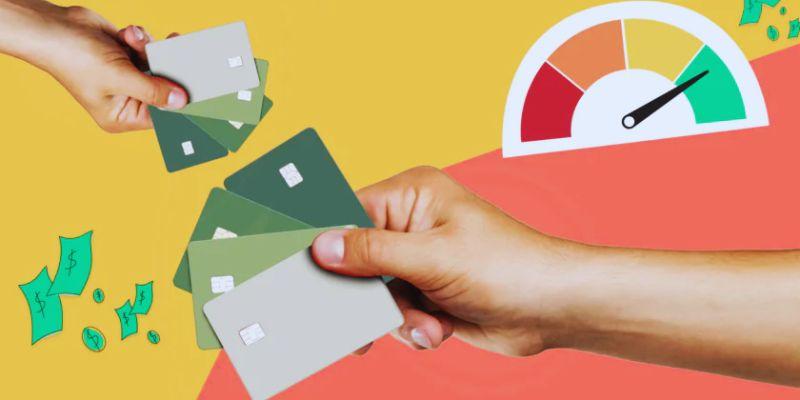Prepaid cards are gaining popularity among people seeking easy spending without a credit check. Many use them for everyday spending and to keep track of their spending. These cards resemble credit or debit cards but function in a very different manner. They work like digital currency: they're secure and widely used.
Parents offer their kids prepaid cards to teach them the value of being responsible. You can't build credit with prepaid cards, but they are easy to use and keep your money safe every day. This article discusses why prudent borrowing is crucial for genuine credit growth.

How Do Prepaid Cards Work?
A prepaid card is not the same as a credit card. People can borrow money from the bank with credit cards. You must repay the money you borrowed, and sometimes you are also required to pay interest on top of that. There are no debts or loans associated with prepaid cards. You need to put money on the card initially. The card only lets you spend the money that is already on it. You have to reload it again if the balance runs out.
You can use prepaid cards to shop, pay bills, and get cash. They work by utilizing digital cash instead of physical cash. Credit bureaus track loans and payments to determine scores. Those bureaus never get any information from prepaid cards. That means that prepaid cards can't change or boost your credit score. They act more like gift cards that can be reloaded and used for more things.
Can Prepaid Cards Build Credit?
You can't create or fix your credit history using prepaid cards. Credit ratings are based on how you pay back loans and how much you borrow. Nothing gets recorded when you use a prepaid card because you don't have to borrow money. Many people believe that using a prepaid card can help improve their credit score. Unfortunately, prepaid cards cannot boost scores. To build credit, you need financial items that are linked to reporting systems.
Secured credit cards require deposits but only report activity on a monthly basis. Credit-builder loans enable you to make payments and keep track of your progress. Becoming an authorized user gives you access to another person's positive payment history, which works similarly to credit-builder loans for new users. Students can learn with credit cards that have minimal limits. These cards keep track of how much you use them and help you be responsible with your money.
Benefits of Using Prepaid Cards
Many people find that prepaid cards provide special benefits. They help control spending by only letting you buy items with loaded money. It prevents overspending and helps people budget more effectively. You don't need to verify your credit to get a prepaid card. Even individuals without a credit history can easily obtain them, making secured credit cards an excellent choice for beginners to build credit. Carrying a prepaid card is safer than carrying cash, and many providers will replace it if it is lost or stolen.
Most retailers and websites accept prepaid cards, allowing people to make digital payments without using a traditional credit card. Parents may give their kids prepaid cards as allowances, teaching responsibility with money. Travelers using prepaid cards overseas avoid currency risks. Prepaid cards help prevent excessive debt by automatically limiting spending and managing finances safely daily.

Limitations of Prepaid Cards
There are several downsides to prepaid cards that you should think about. They don't assist you in developing or improving your credit history. To grow credit, you need to borrow money, which prepaid cards never do. Many prepaid cards have hidden fees or service costs. These fees can significantly reduce your available funds. Prepaid cards typically don't offer incentives such as cash back or travel points. Credit cards usually offer larger rewards for frequent use. Prepaid cards also lack adequate fraud protection and warranties.
Some hotels and rental companies won't accept prepaid cards at all. Gas stations may refuse to accept prepaid payments without notice. These kinds of limits make it difficult for them to be accepted in certain critical areas. You can only spend the exact amount of money that is on a prepaid card. They can't provide you with more borrowing power or create new opportunities in the future.
Alternatives That Help Build Credit
There are better ways to create a great credit history. One standard option is a secured credit card. They require deposits, but they report activity to the credit bureaus. Using credit responsibly over time will slowly raise your credit score. Credit-builder loans also help by making regular monthly payments. The savings and improved credit become available after completing the process. Another effective way to achieve this is to become an authorized user, which is one of the best alternatives to prepaid cards.
Family members who are responsible can share good payment histories. Students can get beginner credit cards with low limits. These cards help people manage their finances responsibly while also promoting discipline. You need to borrow these tools carefully and pay them back on time. They connect directly to reporting agencies, unlike prepaid cards. Obtaining credit makes it easier to secure loans, purchase a home, and secure employment.
Conclusion:
Prepaid cards are easy to use, safe, and provide you with power, but they don't help you develop credit. They function like digital currency, helping you plan your budget, make purchases, and travel. However, credit scores are based on how much you borrow and how quickly you repay it, which prepaid cards do not typically show. People who want to expand their money faster may look into secured credit cards, credit-builder loans, or becoming authorized users. These tools inform credit bureaus about activities and help create lasting opportunities. Making smart choices today will provide you with better financial options in the future.












